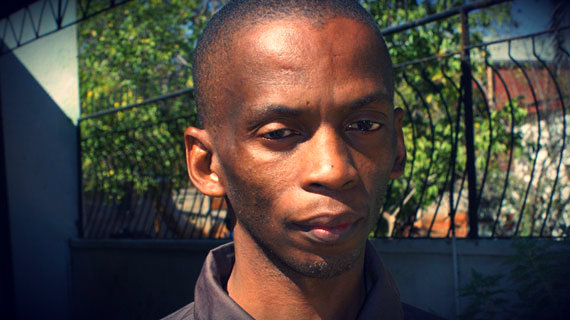
THERE is no nation under the sun that can prosper or enjoy peace and stability if it is predicated on a false history.
Dumisani Nkomo
It is hardly surprising that most young people, especially youths from Matabeleland, do not have a sense of ownership or patriotism.
It has a lot to do with the history which they learn at school, the heroes that are celebrated nationally and the feeling that they and their ancestors were mere spectators in the shaping of the country’s future.
The burial of Zipra heroes such as Colonel Richard “Gedi” Dube, General Lookout Masuku, Swazini Ndlovu, among others, is a sure indication that the role of Zipra and Zapu in the war of liberation is considered peripheral, decorative and cosmetic according to the dominant national narrative.
The history that is written and told at schools gives scant attention to key historic events such as the Battle of Gadade where King Lobengula’s Mbizo regiment was defeated by the settler forces.
The Battle of Shangani (Mbembesi) was celebrated more by the Pioneer Column than it is by official history.
Our official history claims that the Second Chimurenga/Imfazo was launched through the Battle of Chinhoyi in 1966.
- Chamisa under fire over US$120K donation
- Mavhunga puts DeMbare into Chibuku quarterfinals
- Pension funds bet on Cabora Bassa oilfields
- Councils defy govt fire tender directive
Keep Reading
There is little or no mention of the guns which Zapu brought into the country from Egypt in the early ’60s and the role of the likes of Bobylock Manyonga who was arrested for transporting the weapons which Joshua Nkomo had sourced from outside the country.
The greatest prison break in the history of the country in the context of struggle politics must have been the great escape by Moffat Hadebe, Clarke Mpofu and other Zapu combatants in the early ’60s from Grey Prison.
Scant attention is given to the exploits of the Luthuli detachment which was a joint unit of Zipra and Umkhonto WeSizwe and had the likes of South African war hero Chris Hani and Hadebe.
Many South Africans and indeed many Zimbabweans are not aware of how intertwined the Zimbabwean war of liberation was with the war of liberation in South Africa. Many Zimbabweans are treated like dirt in South Africa because the role of Zapu in the South African struggle is not documented.
Many South Africans, and indeed Zimbabweans, do not know that Zapu arms were confiscated, Zipra generals such as Masuku and Dumiso Dabengwa arrested for years and Joshua Nkomo and company were fired from the government because Zapu had acted as a conduit of Umkhonto WeSizwe weapons which were meant to assist in the liberation of South Africa from the yoke of apartheid.
The story of how South African blood was shed in the struggle for Zimbabwe has to be told.
The story of how Zimbabwean lives assisted in the liberation of South Africa has to be told.
The contribution of sons of Matabeleland not only to the liberation of Zimbabwe, but also that of South Africa has to be recorded and celebrated.
It will be very difficult for youths from Matabeleland and indeed other people from the region to fully appreciate the value of independence unless their story is told.
The war was not just fought by Zanu and Zanla.
It was Zipra that hit the fuel tanks in Salisbury.
It was Zipra that had an entire conventional army with tanks and even air force units.
That story has not been told and the average Matabele is right in assuming that they are mere refugees in Zimbabwe.
To this day, there is no street named after Joshua Nkomo, Masuku or Ethan Dube.
Today General Masuku and many Zipra heroes are buried at Lady Stanley Cemetery while some people whose only claim to fame was looting the national coffers are interred at a shrine called the National Heroes’ Acre.
Even our national emblems, anthem and institutions do not seem to adequately represent the ethnic diversity of the nation.
As a nation, we need to have conversations with ourselves as to why people, especially from Matabeleland, view many national emblems, symbols and institutions as symbols of Zanu PF domination and ethnic oppression.
I respect and love the national flag and anthem as constitutionally obligated, but how many people choose to continue to sing the words of Nkosi Sikelel’ iAfrika and not our current revered anthem.
In fact, how many people know all the words of our national anthem? Does the national flag embody our national, cultural and linguistic diversity or it is reflective of one ethnic group and its history and culture?
Our youths choose to listen to South African music and dress like South African gangsters because they identify more with South African culture and languages than what they see on ZBC which seems to be promoting monolingualism, monoparti(sm) and monoculturism .
Even the police and the army are viewed by many youths as symbols of Zanu PF domination hence the limited enthusiasm in joining such institutions.
The youths may be wrong in their assumptions, but the point is our national institutions and symbols need to be realigned to the multiethnic, heterogeneous and cosmopolitan nature of our country.
Do Zimbabwe-born whites, Asians and coloureds also feel like they are part of this country or have we created a monolithic history, culture and national identity?
Mayibuye!
Dumisani Nkomo is an activist and opinion leader










